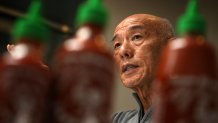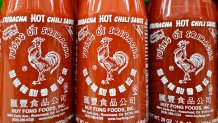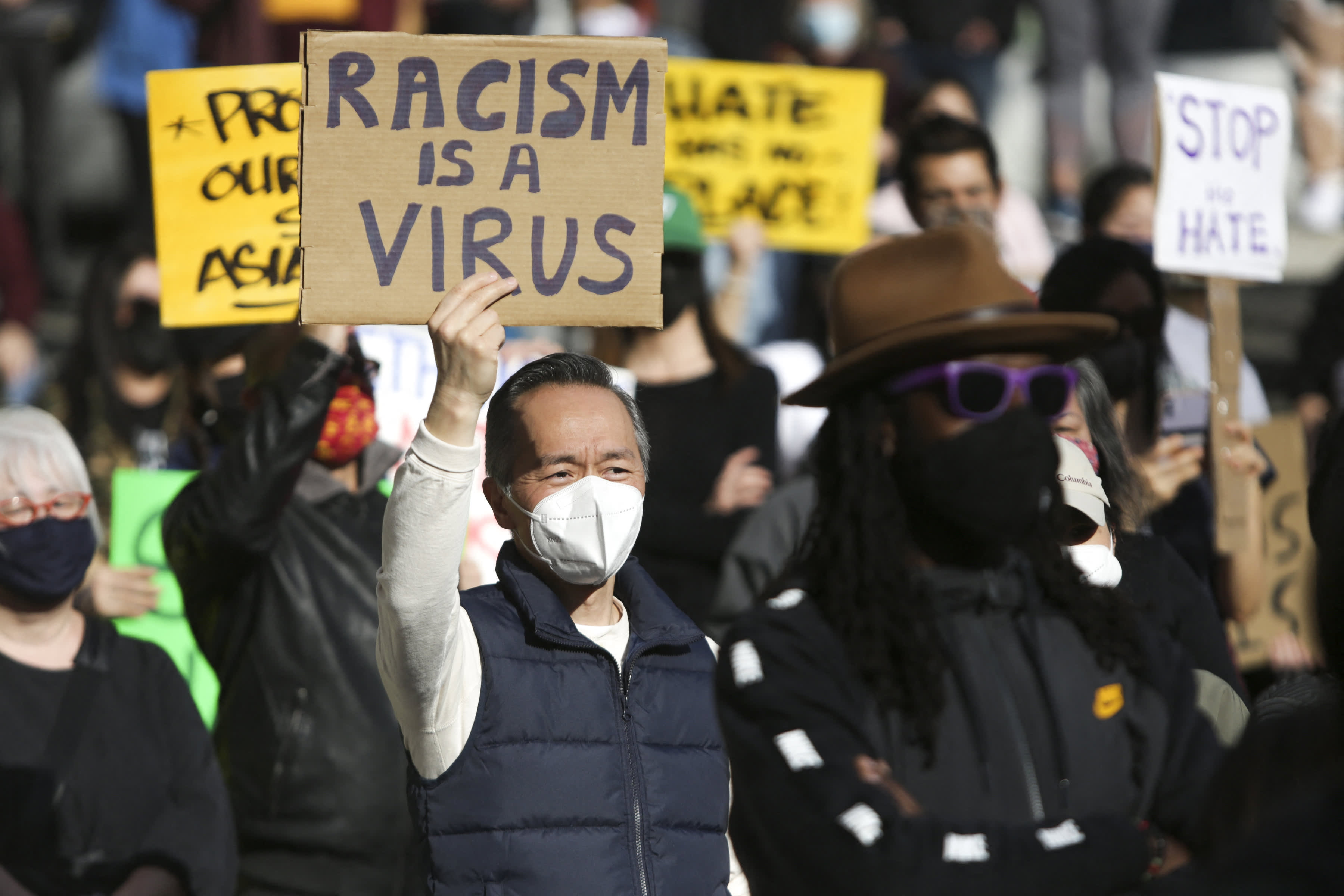
Throughout the month of May, NBC Owned Television Stations is profiling members of the AAPI community as part of Asian American Pacific Islander Heritage Month
David Tran’s sriracha faces competition, not the least of which is a version of the chili sauce that a Thai company says is the original, first made in Si Racha, Thailand, 80 years ago.
He has had serious setbacks, among them a costly lawsuit against the farmer who grew peppers for the sriracha for nearly 30 years before the partnership dissolved in a lawsuit. Not only was Tran’s company, Huy Fong Foods, ordered to pay more than $20 million but the farmer now has his own brand of the hot sauce, Underwood Ranches Sriracha.
Then there were complaints about his factory in Irwindale, California. Neighbors said that their eyes were burning and their throats irritated, that they were getting headaches. The city sued and demanded it shut down until the problem was resolved, but then Tran gave tours to prove he wasn’t making tear gas, as he told the Pasadena Star News, and installed chili odor controls. That lawsuit was dropped.

Through it all Huy Fong Foods has continued to produce sriracha, a blend of red jalapeños, sugar, salt, garlic and vinegar. Even with no advertising, the privately owned company sold more than $60 million worth of sauce in 2012, the Los Angeles Times reported.
Huy Fong Foods controlled nearly 10% of the $1.55 billion American hot-sauce market in 2019, according to the marketing research company IBISWorld, and today remains among the top three hot sauce companies in the United States out of 289 businesses. IBIS World warns though of growing competition from foreign producers and expansion of those already in the field.
Tran has said he's too busy making sriracha to worry about his competitors, though.
“I know that I cannot make enough of my product to meet the demand, so let them have it and work together for the consumer,” he told Bloomberg in 2019.
Tran began making hot sauce while he was still in Vietnam, he told Inc. After the war, his brother grew peppers, he ground them and his father-in-law washed used Gerber baby-food jars.
In 1978, he and his relatives left Vietnam aboard a freighter called Huy Fong, one of many ethnically Chinese families who emigrated at the time. After a month at sea and a temporary stop in Hong Kong, he ended up in Boston and his family was scattered.
“My brother-in-law was in Los Angeles,” Tran told The New York Times in 2009. “When we talked on the phone, I asked him, ‘Do they have red peppers in Los Angeles?’ He said yes. And we left.”
By 1980, he was in Los Angeles and had incorporated his new company. He made sriracha by hand and sold it in markets in Los Angeles’ Chinatown, making $1,000 in profit in his first month, he told Inc.
Today it comes in the bottle with the distinctive green top and a rooster on the front, representing the year Tran was born in the Chinese zodiac. His pricing philosophy has remained constant, what he described to the Los Angeles Times as “Make a rich man’s sauce at a poor man’s price.” He said his goal always was to make a fresh, spicy hot sauce, not to become a billionaire.

For its chili peppers, Huy Fong Foods had a nearly 30-year partnership with Underwood Ranches in California's Ventura County. Underwood Ranches was the exclusive provider of the jalapeños until a dispute over payments and in 2019, a jury awarded Underwood Ranches $23.3 million, a verdict Huy Fong Foods vowed to appeal.
Another of his competitors, Thaitheparos PLC, says on its website that it bought the company that made the original sriracha chili sauce, which it calls Sriracha Panich. It was created by Thanom Chakkapak for her family and neighbors to eat with seafood in the city of Si Racha on the Gulf of Thailand, it says.
Her granddaughter, in an interview with NPR in 2019, said it was actually her great-grandfather who first made the sauce. She told the radio station that she thought that in Tran's version, the heat overpowered the other flavors — sour, sweet and garlic.
Thaitheparos’s export manager acknowledged that Huy Fong Foods had a head start in the U.S. market, but said it was the top sriracha distributor in China and hoped to command the world market.
Over the years, Tran says he has ignored unsolicited advice from customers and others. The sauce was too spicy, not sweet enough, needed a tomato base, the Los Angeles Times reported he was told. Huy Fong Foods makes only three sauces: the sriracha, a chili garlic sauce and samba oelek, a ground chili paste, and Tran has resisted suggestions that he add others.
“I know it’s not a Thai sriracha,” Tran told The New York Times. “It’s my sriracha.”
Nor does he want to sell the family-run company. It is like a loved one, he has said.
“Why would I want to share it with someone else?” he asked in the Inc. article.



